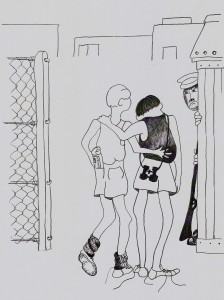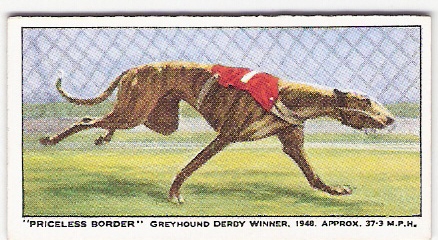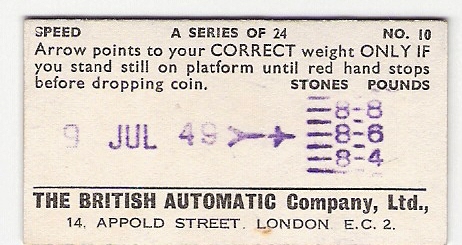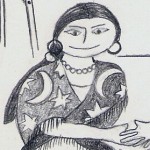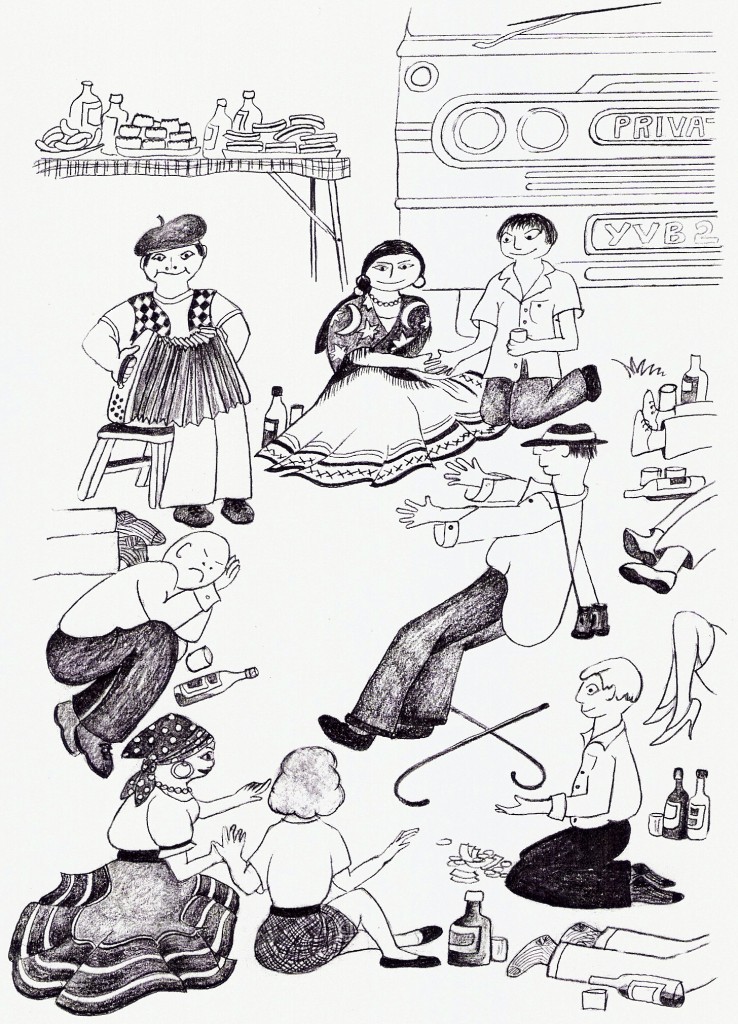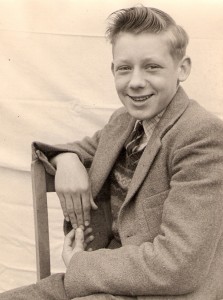White Lightning
Father Perry Green was no stranger to greyhounds. His uncle Robert had taken him to Harold’s Cross, as a boy, to see the great Spanish Battleship win his third Greyhound Derby. And later, during his seminary days, he would sometimes be seen at the local flapping track. So, when Uncle Robert’s son Jamie asked if he could leave a white greyhound with him for a few days, Perry was joyful at the prospect. It would encourage a healthy life style too, he reasoned – a couple of miles walk early in the morning and a mile after dark – it would be good for both of them.
“Oh and by the way Emily,” Perry beckoned, lowering his voice, “when the dog arrives I’d like to keep quiet about his stay with us – parishioners can be very inquisitive.”
Emily, ahead of him in that matter, gave him a tolerant smile.
The following evening, after dark, Jamie arrived with the greyhound.
“He’s a grand looker,” said Perry, “what’s his name?”
“White Lightning,” replied Jamie, “although his kennel name is Blanco!”
“Just one black ear,” observed Emily, “are all-whites rare?”
“As a matter of fact they are,” said Jamie, “although, saying that, I did see one a week or two ago at a flapping track.”
Jamie then gave them Blanco’s bed and apologised for not bringing any dog food.
“Don’t worry about that Jamie, I know how to feed greyhounds,” said Perry with confidence.
They shook hands, patted the dog and Jamie said goodbye.
A few hours later, rather than go down to the supermarket, Emily popped out to the corner shop.
“Just to get a few things for the dog,” she called out to Perry.
And within minutes, she had filled her basket with tins of Pedigree Chum, some biscuit mixer and a bone-like chew – it was a big mistake. For as Emily joined the checkout queue, who should come in but Mary McGovern.
At first, Emily pretended not to notice her, but it was quite hopeless.
“Emily, Emily dear, how are you and how is Father Green?”
She meant well of course and fortunately, recalled the parish quiz night and Father Perry’s success with the sporting questions, which, as luck would have it, gave Emily enough time to throw in a couple of free magazines over her basket. “Phew,” she thought and headed for the door.
Alas, only to hear Mary asking the cashier, “How long has Father Green kept a dog; unless of course, Pedigree Chum is on the menu at the Presbytery?”
By the time Emily had returned to the Presbytery, she decided that she hadn’t heard Mary’s comment, and so, she said nothing to Father Perry.
In the meantime, she thought it safer to steer clear of the corner shop until after Blanco had departed.
A few days later, whilst doing her weekly grocery shop in Sainsbury’s, she saw Brenda Bartholomew looking through the greetings cards.
“How’s the singing tuition going,” Emily enquired.
“Oh, fine, I’m really enjoying it,” then, “say, what’s this I here about Father Green having a dog?”
“Dog, what dog?”
Emily quickly went on defence, successfully using all her gossiping skills to distract Brenda.
Back Home, Father Perry, tentatively and silently helped her unpack the groceries. Eventually he had to ask, “Did you get anything for the dog Emily?”
“Oh yes,” she replied breezily, “there’s 8lb of best mince, a large cabbage, onions, half a dozen eggs and a loaf of granary bread, which I can toast. Oh, and you’ll find a bottle of Bristol Cream Sherry; Dad always added a little sherry to the raw eggs on race night!”
Now that Emily had revealed that she was no stranger to the game, Perry was able to tell her that Blanco, alias, White Lightning, would likely be the subject of a flapping track coup. How, where and when, he didn’t know, but after dark, Perry took off his dog collar and put White Lightning’s on. They were going for their late night walk.
The next few days were pure joy for Perry, walking the greyhound every day brought back memories, not only of his bitch Tina d’Argentina, but his misspent youth, then, of course, with less subterfuge. Nonetheless, when Emily told him the dog’s provisions had run out, he began to show concern for Jamie’s return – after all, how much more of the best mince should Emily be expected to buy?
On the afternoon of the eighth day the door chimes sounded the return of Jamie, who came through the door with another white greyhound.
“How’s the lad been?” enquired Jamie, running his hands along the back and sides of White Lightning.
“He certainly looks grand,” he said, looking at Father Green in approval.
“Oh yes, he’s fine,” said Perry.
Then turning to the new arrival enquired, “What’s the plan with this one then?”
“Well as a favour Father, perhaps I could leave this fella with you until tomorrow? I’ll be back in the morning to collect him and then I’ll settle up – will odds to £100 be O.K.?”
“You don’t have to do that Jamie, I’ve had the fun of looking after him.”
At that point Emily joined the conversation with, “What’s this one called?”
“Let’s just call him The Understudy,” said Jamie, keeping a straight face.
“Enough said,” said Perry, tapping the side of his nose and glancing across at Emily, to indicate she should leave it there.
It was later that night, when Father Green returned from walking The Understudy, that he voiced his concern.
“I’ve been thinking, Emily, this greyhound is completely white, whereas White Lightning had one black ear. I do hope Jamie knows what he’s doing.”
“Well, whether he does or not, Father, it’s none of our business – all you’ve done is to walk a dog for a friend.”
Early the following morning Jamie was back. Emily watched his white van draw up and saw him bound up the path. She opened the door.
“Did everything go alright?” she said hopefully.
“Yes fine. Is Father Perry in?”
“No he’s saying Mass at the school this morning.”
“Oh, that’s a pity,” said Jamie, “Never mind, would you give him this envelope and say that I’m really grateful for all his help, and also to you come to that.”
“Sure, sure,” Emily nodded.
“Have you come to take this one back now?” she said, already fixing the lead to his collar.
“Yes, of course, it’s a pity Father’s not here. But thank him for me won’t you.”
“For sure,” she said, handing over the lead.
“Have you got White Lightning in the van – can I just say goodbye to him?”
“Yes, he’s fine,” said Jamie, “Come and see.”
Emily, Jamie and The Understudy walked out to the van. Jamie opened the back to put The Understudy in on the mattress, while Emily lovingly fondled White Lightning’s head.
“White paint,” she exclaimed, looking down at her hand. Then, coolly, “Shall we get him cleaned up?”
But no, Jamie said there was no time for that and soon after, she watched the van turn the corner of the road and they were gone.
Emily decided not to mention the paint to Father Perry.
“Why compromise a good priest,” she thought, “and anyway they had been promised a good meal for their troubles.”
Then, just as she had finished scrubbing the white emulsion from her hands, the door chimes rung. It was Basil Tompkins.
“Come in Basil. Father’s not yet back from saying Mass at the school I’m afraid.”
“Oh that’s alright my dear, I was just passing and thought I’d take a look at his new dog!”
That evening, Perry took Emily and her brother Donald, for a meal down at The George. When they were all seated, Emily said she would like to propose a toast.
“To White Lightning and may he never strike in the same place twice!”
This story was taken from Michael’s book , The Gambling Adventures of Father Green, of which he has a few signed copies for sale.
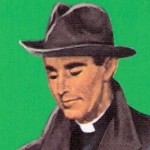
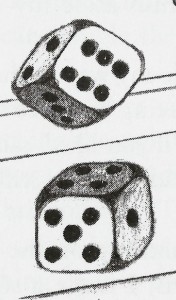
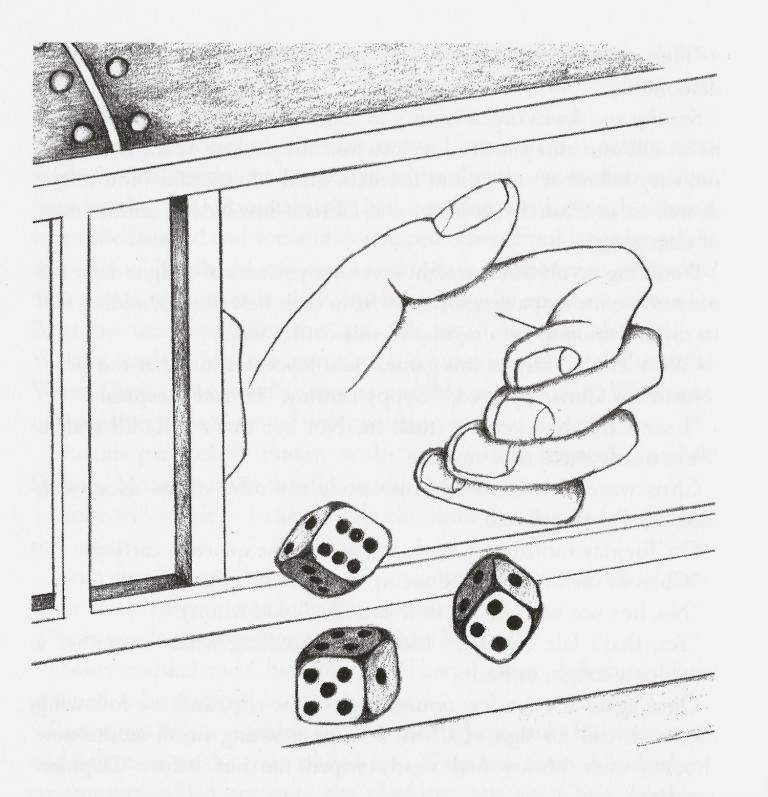 Next day, hoping to add to my run of luck, I watched the windows of the 8.27 as it arrived at Woking and, catching a glimpse of Monty, hurried along the platform to join him.
Next day, hoping to add to my run of luck, I watched the windows of the 8.27 as it arrived at Woking and, catching a glimpse of Monty, hurried along the platform to join him.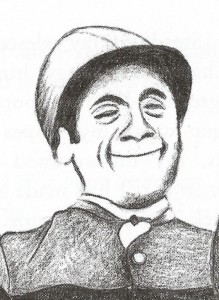
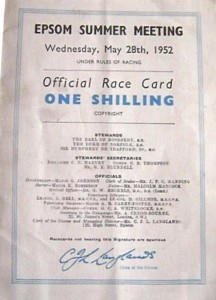 Early Wednesday morning, having got special permission from Headmaster, Bonk Peel, to have Derby Day off, I dropped into the hairdressers to hand in my family’s bets. Charlie and Alice, looking the worst for wear, were already occupied with a steady stream of shilling each-way’s and any-to-come’s. Alice confided, “Charlie’s furious with Solly – it isn’t the first time you know. If he doesn’t show and Tulyar loses, we’re buggered – it’s like doing a thousand hair cuts for nothing.”
Early Wednesday morning, having got special permission from Headmaster, Bonk Peel, to have Derby Day off, I dropped into the hairdressers to hand in my family’s bets. Charlie and Alice, looking the worst for wear, were already occupied with a steady stream of shilling each-way’s and any-to-come’s. Alice confided, “Charlie’s furious with Solly – it isn’t the first time you know. If he doesn’t show and Tulyar loses, we’re buggered – it’s like doing a thousand hair cuts for nothing.”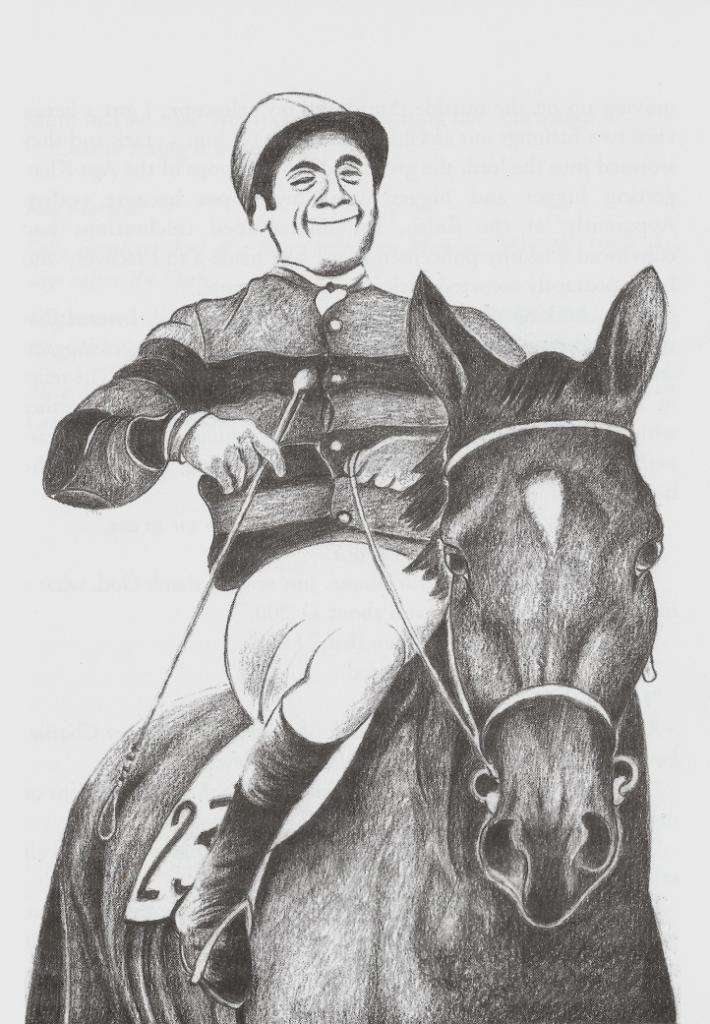 Apparently, at the finish, my unrestrained celebrations had convinced a nearby policemen that I had made a full recovery and I was promptly escorted back into the enclosure.
Apparently, at the finish, my unrestrained celebrations had convinced a nearby policemen that I had made a full recovery and I was promptly escorted back into the enclosure.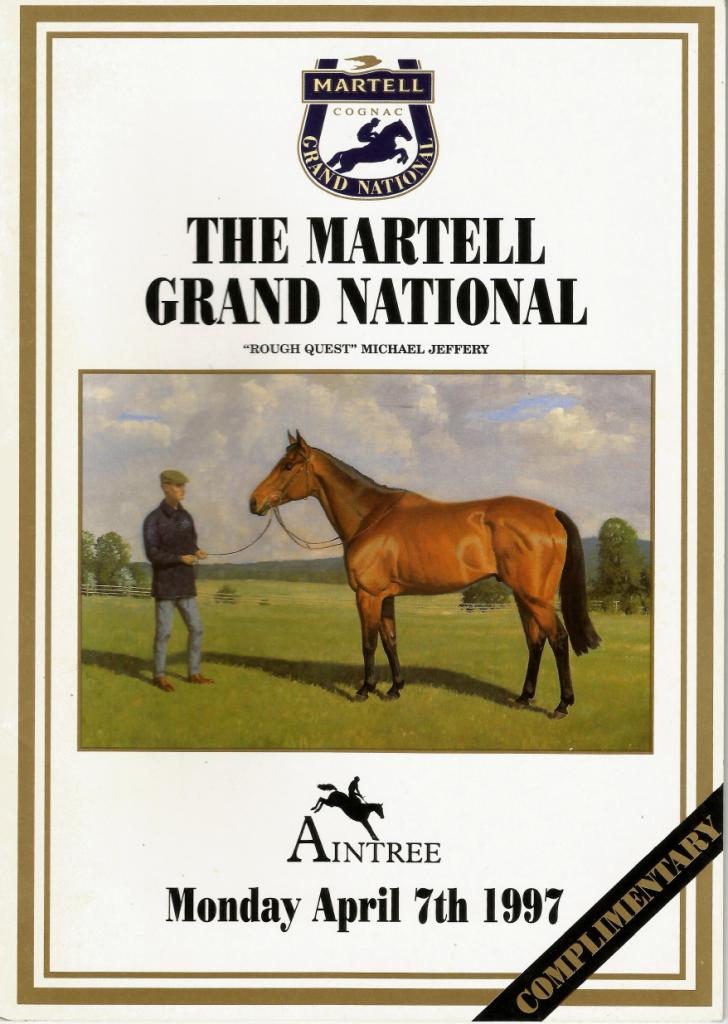
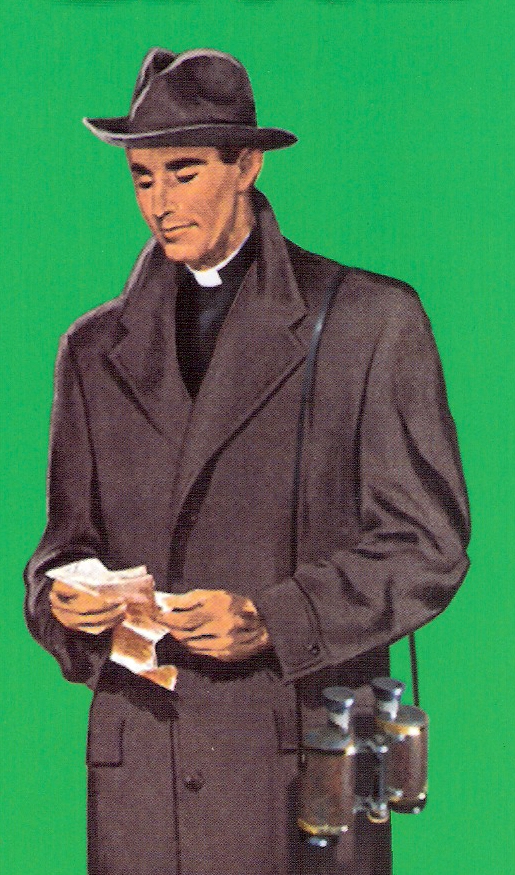 His betting, however, could have gone a little better, having backed The Last Fling, second to Cyborgo in the Mildmay, and then Highlandman, second again, to Blue Cheek in the Fox Hunters. Never mind this was like a holiday to Perry and he was determined to enjoy every minute of it.
His betting, however, could have gone a little better, having backed The Last Fling, second to Cyborgo in the Mildmay, and then Highlandman, second again, to Blue Cheek in the Fox Hunters. Never mind this was like a holiday to Perry and he was determined to enjoy every minute of it.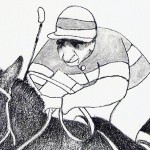
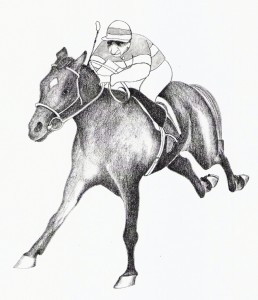
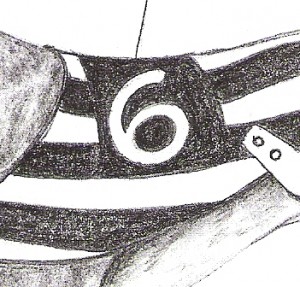
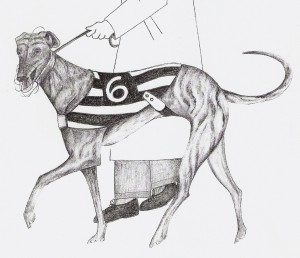 Last year’s winner, the brindled Ballymac Ball, looked a picture. Trained by Stan Martin at Wimbledon and drawn again in Trap 6, he would be difficult to beat. At 14, as now, nothing focused my mind faster than the anticipation of the traps opening.
Last year’s winner, the brindled Ballymac Ball, looked a picture. Trained by Stan Martin at Wimbledon and drawn again in Trap 6, he would be difficult to beat. At 14, as now, nothing focused my mind faster than the anticipation of the traps opening.
